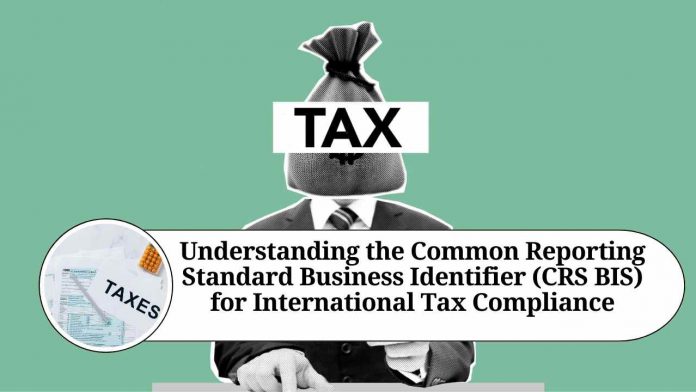CRS BIS, or Common Reporting Standard Business Identifier, is a unique identification number used to identify businesses in the context of international tax reporting. The CRS BIS was developed by the Organisation for Economic Co-operation and Development (OECD) as part of the Common Reporting Standard (CRS), which is a global standard for the automatic exchange of financial information between tax authorities.
The purpose of the CRS BIS is to provide a consistent and unique identifier for businesses that is used across all participating jurisdictions. This allows tax authorities to identify and track the financial activity of businesses that operate in multiple jurisdictions, making it easier to enforce tax laws and prevent tax evasion.
To obtain a CRS BIS, a business must first register with its local tax authority and provide certain identifying information, such as its legal name, address, and tax identification number. The local tax authority then verifies the information and assigns a unique CRS BIS to the business.
The CRS BIS is used in conjunction with other identifying information, such as the business’s name and tax identification number, to ensure that the correct business is identified and reported to the relevant tax authority. This helps to ensure the accuracy and completeness of the financial information exchanged between participating jurisdictions.
The implementation of the CRS and the use of the CRS BIS have had a significant impact on international tax compliance. By increasing transparency and cooperation between tax authorities, the CRS has made it more difficult for individuals and businesses to hide assets and income offshore. This has helped to level the playing field for businesses that operate in multiple jurisdictions and comply with tax laws in each jurisdiction.
However, the implementation of the CRS and the use of the CRS BIS have also created challenges for businesses. In particular, businesses must ensure that they are compliant with the reporting requirements of each jurisdiction in which they operate, which can be complex and time-consuming.
conclusion
the CRS BIS is an important tool in the fight against tax evasion and the promotion of international tax compliance. While it has created challenges for businesses, it has also helped to level the playing field and promote a more fair and transparent global tax system.
Other Related Blogs: Section 144B Income Tax Act
Frequently Asked Questions (FAQs)
Q: What is CRS BIS?
A: CRS BIS, or Common Reporting Standard Business Identifier, is a unique identification number used to identify businesses in the context of international tax reporting.
Q: Why was CRS BIS developed?
A: CRS BIS was developed by the Organisation for Economic Co-operation and Development (OECD) as part of the Common Reporting Standard (CRS) to provide a consistent and unique identifier for businesses that is used across all participating jurisdictions.
Q: Who needs a CRS BIS?
A: Businesses that operate in multiple jurisdictions and are subject to the CRS reporting requirements may need a CRS BIS.
Q: How do I get a CRS BIS?
A: To obtain a CRS BIS, a business must first register with its local tax authority and provide certain identifying information, such as its legal name, address, and tax identification number. The local tax authority then verifies the information and assigns a unique CRS BIS to the business.
Q: How is CRS BIS used in international tax reporting?
A: The CRS BIS is used in conjunction with other identifying information, such as the business’s name and tax identification number, to ensure that the correct business is identified and reported to the relevant tax authority. This helps to ensure the accuracy and completeness of the financial information exchanged between participating jurisdictions.
Q: What impact has the implementation of CRS and CRS BIS had on international tax compliance?
A: The implementation of the CRS and the use of the CRS BIS have had a significant impact on international tax compliance. By increasing transparency and cooperation between tax authorities, the CRS has made it more difficult for individuals and businesses to hide assets and income offshore. This has helped to level the playing field for businesses that operate in multiple jurisdictions and comply with tax laws in each jurisdiction.
Q: What are some challenges of complying with CRS and CRS BIS requirements?
A: Compliance with CRS and CRS BIS requirements can be complex and time-consuming for businesses that operate in multiple jurisdictions. Businesses must ensure that they are compliant with the reporting requirements of each jurisdiction in which they operate, which can require significant resources and expertise.
Q: What penalties can businesses face for non-compliance with CRS and CRS BIS requirements?
A: Penalties for non-compliance with CRS and CRS BIS requirements can vary by jurisdiction, but can include fines, interest, and other penalties. In some cases, non-compliance can also lead to reputational damage and loss of business opportunities.




















